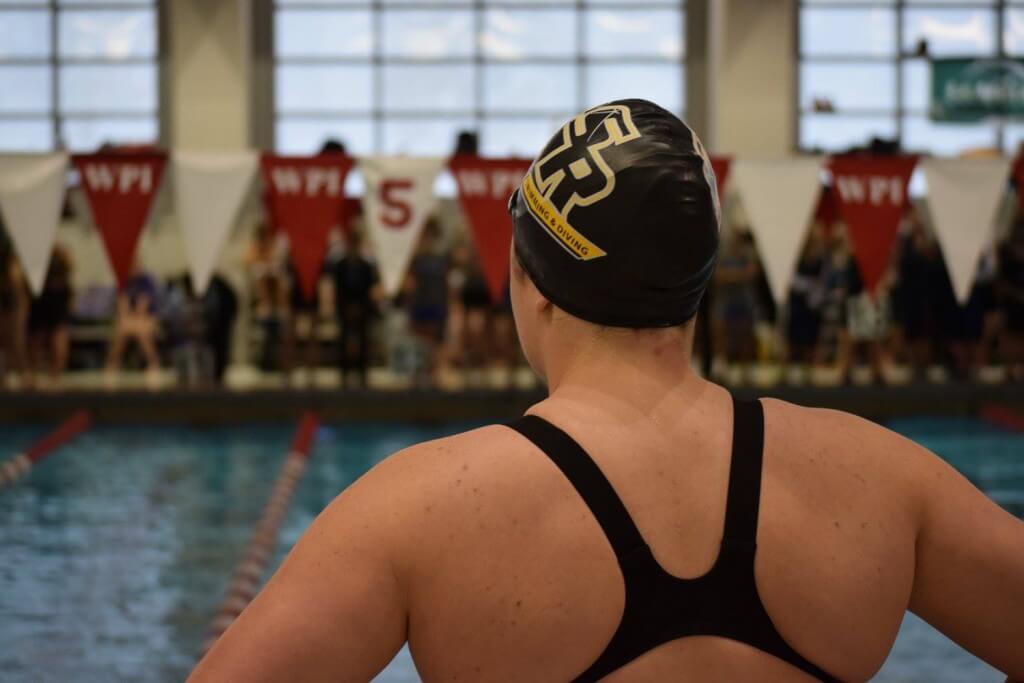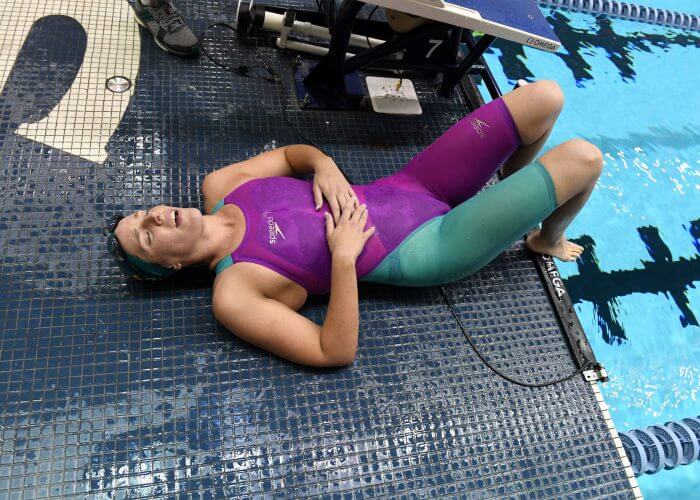Championships Can be Just the Beginning

By Maddie Strasen, Swimming World College Intern
You’ve worked hard all season. You’re tapered, shaved, and a combination of nervous and excited to see where your times will stand at your conference or championship meet. Your mind flows with internal pressures while your coaches or teammates may add to the external pressures. Nevertheless, time can’t and won’t slow down. It’s time to leave it all in the pool.
All the hard work you’ve put in comes down to this point.
And you don’t get the result you wanted.
Too often, swimmers don’t achieve the result they desire at their championship meet. It’s easy to view the entire season as a failure based on the end result. After all, it’s the meet your coaches reminded you about every day, during every rep in the weight room and every hard set in the pool. It’s the meet where you expected to meet your goal times—to feel on top of the world.

Photo Courtesy: Xinhua/Fei Maohua
No matter how hard you worked and how prepared you are for your races, there are many factors that can affect your swims on the big day. Internal pressures can consume you—wanting to clock a best time, beat your opponents and make your coaches and teammates proud. External pressures, such as scoring points for your team, can also mess with your mind. Additionally, there are small details that go into every race and, despite how much you’ve worked on them, the excitement and nerves of the championship meet can cause technique to falter.
No matter the reason a race might not have turned out as planned, it’s crucial to maintain perspective on the entire weekend. If you didn’t reach a goal time, ask yourself what went wrong in the race and use it to focus on the next time you compete in that event. Even though you didn’t reach your goal, was it still a decent swim? Just because it wasn’t exactly what you wanted does not mean you have failed. What can you take out of this experience to remember for the future? It’s important to learn from mistakes and not dwell on them. Dwelling or focusing too much on the things that went wrong can make your attitude negative and impact the next season.

Photo Courtesy: Matt Rubel of Rubel Photography
Remember all the times you have reached a goal during the season. Even though you aren’t always happy with the result, you shouldn’t forget the goals you accomplished throughout the season. Mid-season meets can sometimes, and surprisingly, bring out great swims and times that should not be forgotten. You may have hit a pace time in practice that you’ve never hit before or haven’t hit in a long time. One of the greatest things about swimming is that it’s all about the process. Be proud of what you put yourself through every day, how you pushed yourself, how you improved yourself mentally and physically.
Recognize all you’ve accomplished, but don’t forget to ask yourself what you could have done better. Even though you’ve given it your all, everyone has room to improve. Mental training is one of the most commonly ignored aspects of training and arguably one of the most important. Mental training can help an athlete cope with internal and external pressures. Nutrition is also something that isn’t often accounted for. The factors can vary for every individual, so focus on yourself and what you need to do to reach your fullest potential.

Photo Courtesy: Delly Carr / Swimming Australia Ltd.
If your team allows, taking some time off after a championship meet is helpful to mentally reset for the upcoming season. Having time off to relax and reflect can do a world of good—remind yourself of your goals and why you started swimming in the first place. Shake off the dust and get mentally ready for getting after what you truly want.
Swimming is a sport that always gives second chances. As the old adage goes—if at first you don’t succeed, get up and try again.
All commentaries are the opinion of the author and do not necessarily reflect the views of Swimming World Magazine nor its staff.




That’s my best friend go best friend!